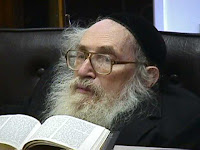
I spent alot of time (mostly Shabbos afternoons in high school) reading Sherlock Holmes (especially the Annotated Sherlock Holmes (two volume set). Sir Arthur Conan Doyle had a way of writing and letting us see most of what Holmes saw, but not quite the whole picture until it was explained by Holmes. Sherlock’s keen sense of deduction and obervation are legendary.
A classic example would be from the beginning of A Scandel in Bohemia:
“You see, but you do not observe. The distinction is clear. For example, you have frequently seen the steps which lead up from the hall to this room.”
“Frequently.”
“How often?”
“Well, some hundreds of times.”
“Then how many are there?”
“How many? I don’t know.”
“Quite so! You have not observed. And yet you have seen. That is just my point. Now, I know that there are seventeen steps, because I have both seen and observed.
We are often referred to as ‘observant Jews’. ‘Observant’ is defined as:
paying close attention especially to details
quick to notice; showing quick and keen perception
law-abiding: (of individuals) adhering strictly to laws and rules and customs; “law-abiding citizens”; “observant of the speed limit” wordnet.princeton.edu/perl/webwn
I guess, it’s true. Compared to other groups of Jews, we, ‘Torah observant’ would fall into the above definition. I’d like to focus on the “quick to notice; showing quick and keen perception” aspect of being ‘observant’. The leaders of previous generations were not only Gadolim in terms of their Torah knowledge, but were extremely sensitive to the world and people around them. I admit, sensitivity to the individual within Yiddishkeit was one of the things that constanly blows me away. I humbly offer three examples for you to think about and maybe even discuss at your Yom Tov table:
In the last years of the great 19th-century thinker Rav Samson Raphael Hirsch, he asked his grandchildren to take him to see the Alps. When questioned why at such a late age he wants to go sightseeing, he answered: “I am worried that after my life I will go up to heaven and Hashem will ask me, “Samson, warum hattest du nicht gesehen mein schonen Alpen?” Samson, why did you not see my beautiful Alps?” (Based on the Artscoll biography of RSRH).
Once, Rabbi Dov Ber, the Alter Rebbe’s son, was studying late at night, his infant son in a cradle nearby. Rabbi Dov Ber was so immersed in his studies that when the baby fell out of the cradle he did not hear the child cry. The Alter Rebbe was also studying in another part of the house. But he heard his grandson’s cry and quickly went to pick him up. “You must always hear the cry of a child,” the Alter Rebbe rebuked his son.
Rav Yosef Dov Soloveitchik, the Bais Halevi, was once asked the following question: Can a person fulfill the mitzvah of drinking for cups at the Pesach seder with milk, instead of wine? The Bais Halevi answered no and then gave the individual who asked him the shi’lah a large sum of money. Later Rav Soloveitchik was asked why give so much money, if all the person needed to buy was some wine for the seder. The Bais Halevi replied, “Because he asked about using milk for the seder, that must have meant that he didn’t have enough funds for any meat, as well.”
We do observe. Hopefully it’s the right things. The beauty of Hashem’s world, a child in need, an opportunity not to embarrass someone is dire straights.
I was recently asked, what I found to be a difficult question. “What excites you?”
I was caught of guard and really didn’t have an answer at the time. It bothered me. I have a lot to be excited about. It’s stories like the ones above that excite me. It’s hearing good news about my kids being sensitive to others in school that excites me. It’s Lightning McQueen realizing that sometime you win even though you don’t come in first place that excites me. It’s the way I feel when my neshama know that I’m doing the right thing that excites me. It’s the smell of fresh ground coffee on a Sunday morning that excites me. I realized that it was difficult for me to initally answer that question because I really don’t take as much time as I should to be observant of my surroundings. This is something (along with several other things) that I am working on during this new year.
Sukkos excites me. After spending time in shul of a beis midresh davening we are commanded to leave our homes and venture outside into the world. We take our all of the feelings from Rosh Hashana and Yom Kippur and bring our families outside the safety of our homes. The message of the above three stories is simply: Look around. See and listen to what is around you and show koved to all that Hashem as created. I wish you an inspiring Sukkos.






